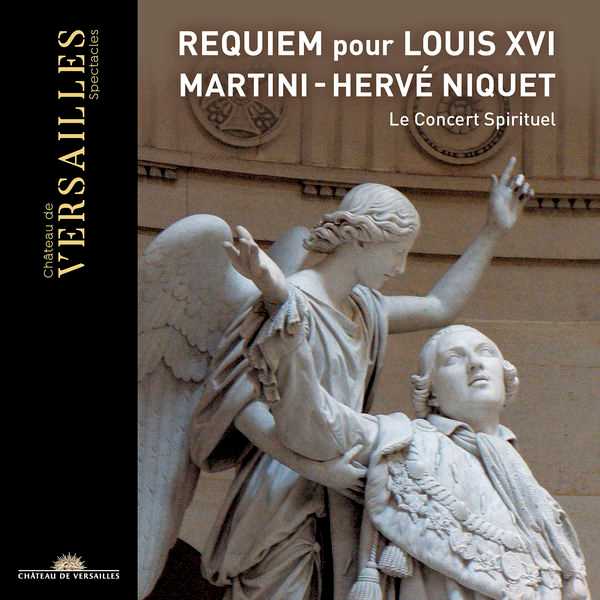

Composer: Johann Paul Aegidius Martini, Claude-Joseph Rouget de Lisle
Performer: Adriana Gonzalez, Andreas Wolf, Julien Behr, Le Concert Spirituel
Conductor: Hervé Niquet
Format: FLAC (tracks)
Label: Château de Versailles Spectacles
Catalogue: CVS022
Release: 2020
Size: 1.11 GB
Recovery: +3%
Scan: yes
Martini: Requiem à la mémoire de Louis XVI
01. I. Requiem aeternam
02. II. Dies irae
03. III. Liber scriptus
04. IV. Rex tremendae majestatis
05. V. Ingemisco
06. VI. Oro supplex – Lacrymosa
07. VII. Offertorio
08. VIII. Sanctus
09. IX. Elevatione
10. X. Noli meminisse
11. XI. Agnus Dei
12. XII. Amen
13. Rouget de Lisle: La Marseillaise
The composer involved in this release, Jean-Paul Égide Martini (1741-1816), will be unknown to most listeners, and his rediscovery by Hervé Niquet and Le Concert Spirituel represents a major event. German born, Martini flourished in France and managed to ride out the entire revolutionary period as a productive composer, with the exception of the “Reign of Terror” (he got the hell out of Dodge). True to form, when the monarchy was restored in 1814, Martini, by then in old age, published this Requiem for Louis XVI, which he had published a few years before. What made all of this possible was that Martini seems to have kept up with the times, mastering the weighty revolutionary styles of Luigi Cherubini and others, and feeding them back into this serious proto-Romantic mass. Listen to the highly operatic Elevatione or the big Dies irae that could easily have been written 50 years later. Niquet avoids early music sparsity, with a strong choir of about 40, bulked up with an hautes-contre trio, and a substantial orchestra about ten souls bigger that includes four bassoons, serpent, and a tam-tam. The three soloists give muscular, full-throated performances, and in general, the mass has an imposing tone that must have made a fabulous impression in 1814. It will likely do similarly for any choir that adopts the work today. Impressive sound from the Chapelle Royale at Versailles is another major attraction here. The album closes with Hector Berlioz’s arrangement of La Marseillaise. Whether Berlioz knew the Requiem is unknown, but it would be no surprise at all if he did.